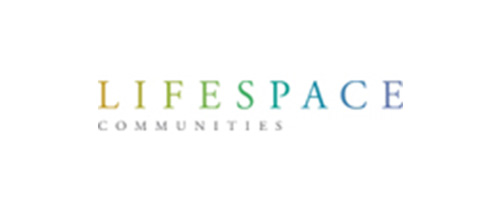Articles
The Journal on Active Aging brings articles of value to professionals dedicated to older-adult quality of life. Content sweeps across the active-aging landscape to focus on education and practice. Find articles of interest by searching the article archives in three ways: Enter a keyword in the articles search bar; click on search by topic; or type a keyword or phrase in the general search bar at the top of the page.
Topic- Research

Indoor air quality, part two: Reducing pollutants to improve health outcomes by Regina Vaicekonyte, MS, WELL AP, and Bing Bing Guo, MPH
Older adults and their families are more aware of the importance of indoor air quality since the emergence of COVID-19, according to a 2021 Delos Consumer Insights Survey. For organizations that serve older adults, including senior living communities and other residential settings, safety is often now the lens through which they view this issue. Yet efforts to provide healthier, safer indoor environments also support health and wellness. How does air quality in indoor spaces affect physiological health outcomes in older adults? This review of air purification interventions reveals their impact on pollutants and participants.
moreResearch

Cautious optimism inspires wellness programs by Patricia Ryan, MS
The new "ICAA State of the Wellness Industry 2022" survey finds wellness staff members adapting to the pandemic era.
moreResearch

Health matters to older adults: Recommendations, considerations and advice by Mary E. Sanders, PhD, FACSM, and James A. Peterson, PhD, FACSM
Human aging, the process of growing up and growing older, refers to the physiological changes that individuals experience over the course of their lifespan. Why these inevitable changes occur has seemingly been debated since time eternal. Currently, more than 300 theories attempt to identify why a person's cells, tissues and organs don't last forever. Each of these efforts tries to explain why the fundamental structures of a cell decline over time. Arguably, however, more important than ascertaining why human cells don't last forever are how they decline and what can be done to slow the process. With regard to "how" cells age, no consensus exists, even though a number of theories have attempted to address this matter. One area in which a noteworthy level of agreement can be found is the issue of whether something can be done to impede the pace of the physiological decline typically associated with aging. In fact, actions can be undertaken to obstruct this downturn. Many of these steps are lifestyle-related, plausibly none more consequential than exercise. ... Based on consensus guidelines developed by a working group of world-renowned experts on aging and exercise--the task force of the International Conference of Frailty and Sarcopenia Research (ICFSR), this article not only provides exercise recommendations for older adults, but also offers a review of the role of physical activity in addressing several health-related concerns that older adults often have.
moreResearch

Community environments link to cognitive aging
People are living longer than ever before, but cognitive decline threatens the quality of those later years. Now, new evidence suggests that where older adults live may help protect against dementia and Alzheimer's disease. A trio of studies from the University of Michigan (U-M) found that urban and suburban neighborhoods with opportunities for socialization, physical activity and intellectual stimulation may help preserve older adults' cognitive health. "Neighborhoods matter," says lead author Jessica Finlay, PhD. "They are important spaces for older adults, and they really impact opportunities or barriers to age well in place." A research fellow at the U-M Institute for Social Research [ISR] Survey Research Center in Ann Arbor, Finlay comments that the papers "think through how neighborhoods might encourage healthy behaviors that could in turn benefit the brain, and for Alzheimer's and dementia risks, which are among the greatest fears and greatest burdens that our aging population faces."
moreResearch

Discerning quality research: How to spot good science by Sally Duplantier, BS
Back in 1998, a physician named Andrew Wakefield published a scientific paper with a finding so startling, it became a media sensation. Never mind that the sample size was small (N=12), or that the design was scientifically flawed, or that the team conducting the research engaged in unethical practices. Thousands of parents still accepted the findings as fact: Vaccines cause autism. Ten years later, The Lancet, the journal that originally published the article, retracted it, and the results of Dr. Wakefield's publication were refuted by the scientific and medical communities. Nonetheless, the damage to public health was done. The vaccination rate of the MMR vaccine (measles, mumps and rubella)--the focus of Wakefield's paper--dropped by 80%. Beyond that impact, the paper created fear and uncertainty in the minds of parents about all vaccines. Wakefield's fabricated publication created a wave of skepticism that lingers to this day, even in a global pandemic. This is not an isolated example. In the quest for the new and novel, the media often sensationalizes research findings in a way that is misleading. In addition, not all scientific research is created equal. The following guidelines will help you wade through the vast array of scientific studies to discern the quality and relevance of their content.
moreResearch

Environment impacts aging at a genetic level
The places we live can change us -- in many cases, down to the molecular level. Exposure to chemicals and other harmful substances in our environment can affect our health in myriad ways over time, aggravating existing health problems, contributing to new disease such as cancer and even impacting how our genes work. Scientists are studying the way our genomic and biological processes change in response to the environment or other external factors in the growing field of epigenetics. In a pair of 2020 studies, [scientists from the United States Environmental Protection Agency (EPA)] found that 1) epigenetic changes related to aging and mortality are impacted by the environment, and 2) epigenetic changes may reveal whether a person is more susceptible to health risks in their environment. The studies are among the first to link these biological indicators of accelerated aging, called molecular biomarkers, to both the quality of the environment and environmental health risks. [Reprinted from the US Environmental Protection Agency's Science Matters newsletter, April 19, 2021.]
more


































